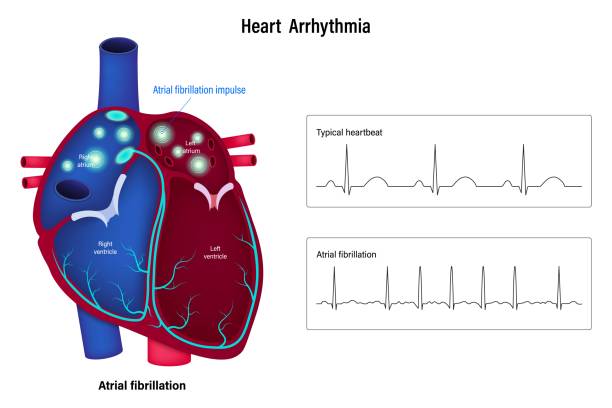Depression is more than sadness. It is a shadow that lingers even in light, a heaviness that seeps into thought, emotion, and body. Around the world, more than 280 million people live with this invisible illness — yet no two experiences of depression are exactly the same. Some feel numbness, others exhaustion, others a deep ache that has no name. For decades, scientists have tried to understand why depression strikes differently from person to person. Now, new research offers a remarkable clue — one hidden deep in our DNA.
For the first time, scientists have uncovered significant genetic differences in how females and males experience depression. The discovery could transform how the world understands, diagnoses, and treats one of humanity’s most widespread mental health conditions.
A Breakthrough in Understanding Depression
In a groundbreaking study published in Nature Communications, researchers from QIMR Berghofer Medical Research Institute revealed that genetic factors contribute more strongly to depression risk in females than in males. Their analysis, which included DNA from hundreds of thousands of people worldwide, found nearly twice as many genetic “flags” for depression in females as in males.
“We already know that females are twice as likely to suffer from depression in their lifetime than males,” explained Dr. Brittany Mitchell, Senior Researcher at QIMR Berghofer’s Genetic Epidemiology Lab. “And we also know that depression looks very different from one person to another. Until now, there hasn’t been much consistent research to explain why depression affects females and males differently, including the possible role of genetics.”
Their study identified around 13,000 genetic variations linked to depression — about 7,000 that appeared in both sexes and an additional 6,000 that appeared only in females. This is the most comprehensive genetic investigation yet into how sex-specific biological factors influence the risk of depression.
The DNA Blueprint of Emotional Vulnerability
Every human carries a unique set of DNA instructions — the biological code that shapes everything from hair color to immune response. Within that code are small variations, or “flags,” that can subtly alter how genes function. Some of these changes increase vulnerability to illness, including mental health disorders like depression.
What this study shows is that the blueprint for depression differs meaningfully between men and women. Females appear to carry more inherited risk markers — a genetic sensitivity that may help explain why they experience depression more frequently and sometimes more severely.
Crucially, these genetic variations are not caused by life experiences such as stress or trauma. They are present from birth — a biological predisposition that can interact with environmental and psychological factors later in life. Understanding this interaction is essential for creating targeted therapies that consider both biology and experience.
How Depression Manifests Differently
Beyond identifying these genetic differences, the researchers also uncovered clues about how depression may express itself differently between the sexes. In females, genetic factors associated with depression overlapped more strongly with genes involved in metabolic traits — including those that regulate weight, energy levels, and appetite.
“We found some genetic differences that may help explain why females with depression more often experience metabolic symptoms, such as weight changes or altered energy levels,” said Dr. Jodi Thomas, co-author of the study.
This finding supports what many clinicians and patients have long observed. Women with depression frequently report physical symptoms like fatigue, appetite changes, and hormonal imbalances alongside emotional distress. Meanwhile, depression in men may be more likely to manifest through irritability, social withdrawal, or risky behavior.
By tracing these patterns to genetic roots, scientists are beginning to connect the emotional, psychological, and physical dimensions of depression into one integrated biological picture.
The Scale of Discovery
The study analyzed genetic data from hundreds of thousands of individuals — including approximately 130,000 females and 65,000 males diagnosed with depression. Such scale makes it one of the largest and most precise investigations ever conducted into the genetic architecture of mental health.
The researchers examined millions of DNA markers across the human genome, searching for subtle differences between those with and without depression. The patterns that emerged revealed the first clear map of how sex-linked genetic factors shape emotional vulnerability.
Unlike mutations caused by environment or lifestyle, these genetic variations are inherited — passed from parents to children through generations. This means the differences observed are not merely reflections of societal pressures or gender roles, but are deeply rooted in biology itself.
Why This Matters for Mental Health Treatment
For decades, most medical research — including clinical trials for antidepressants and other psychiatric medications — has been conducted primarily on men. The assumption was that results could be generalized to everyone. But the new findings challenge that assumption, showing that depression may not only look different in women and men, but may arise from different genetic foundations.
“Unpacking the shared and unique genetic factors in males and females gives us a clearer picture of what causes depression—and opens the door to more personalized treatments,” said Dr. Thomas.
If depression in women is more closely tied to metabolic pathways, treatments that also address hormonal or energy-regulating systems could prove more effective. Conversely, male-targeted interventions might focus more on the neurological circuits linked to emotion regulation and stress response.
This precision approach — tailoring mental health care to an individual’s biological profile — represents the future of psychiatry. It moves beyond the “one-size-fits-all” model and toward truly personalized medicine.
The Interplay of Biology and Experience
While genetics plays a critical role, it is not destiny. Depression emerges from a complex interplay of genetic vulnerability, brain chemistry, environment, and lived experience. Trauma, loneliness, chronic stress, or social isolation can all trigger depression, especially in those who are genetically predisposed.
Understanding genetic differences does not diminish the impact of life’s hardships. Rather, it highlights why some individuals are more sensitive to them — and why two people can live through similar experiences yet emerge with different emotional outcomes. Biology does not erase the story of pain; it helps explain its patterns.
A Step Toward Equality in Research
Historically, women have been underrepresented in scientific studies, particularly in clinical trials. The reasons range from outdated assumptions about hormonal “variability” to practical biases in research design. As a result, the unique biology of women — from their hormones to their metabolism — has often been overlooked in medical science.
This new research marks an important step toward correcting that imbalance. By revealing sex-specific genetic risk factors for depression, it emphasizes that equal representation in research is not only fair but scientifically essential. Without it, medicine risks missing half the story.
The Shared Core of Humanity
While the study underscores differences, it also highlights what unites us. Of the 13,000 genetic variations identified, about 7,000 were shared by both sexes — a reminder that the fundamental biology of depression transcends gender. Both men and women experience deep emotional pain, both respond to treatment, and both carry the same human need for understanding and connection.
What differs is how biology shapes the pathways through which that suffering manifests — and how it can best be healed. Recognizing these differences does not divide us; it brings us closer to a compassionate, nuanced understanding of mental health.
A Future of Hope and Precision
The most inspiring part of this discovery is what comes next. By making their results publicly available, Drs. Mitchell and Thomas have invited scientists around the world to build on their work. This openness accelerates discovery — allowing researchers to cross-analyze data, identify new risk genes, and ultimately develop treatments that are more effective and equitable.
In the near future, genetic screening could help identify individuals at higher risk of depression long before symptoms emerge. Doctors could prescribe antidepressants based not only on psychological assessment but on genetic compatibility. Preventative care could become proactive rather than reactive.
The science of mental health is entering a new era — one that recognizes depression not just as a disorder of the mind, but as a complex, deeply human condition shaped by biology, experience, and society alike.
Understanding the Human Story Behind the Genes
Behind every genome sequence and statistical model lies a person — someone who struggles to get out of bed, who hides behind a forced smile, who quietly endures what words cannot describe. The study’s findings are not just data points; they are glimpses into those human lives.
By exploring the genetic foundations of depression, scientists are not reducing people to their DNA. They are doing the opposite — helping to illuminate why people suffer differently and how each can be helped in their own way.
The Future Written in Our Cells
Our DNA tells a story — one that began millions of years ago and continues within each of us. It is a story of vulnerability and strength, of biology and emotion intertwined. The new research into sex-specific genetics of depression adds another chapter to that story, one that may one day lead to treatments as diverse and nuanced as the people they serve.
Depression will always be a deeply human experience — one that cannot be understood by science alone. But with discoveries like these, we are learning to listen more closely to the biology beneath the pain, to the molecular whispers that might one day lead us from despair to healing.
In the hidden code of our cells lies not just the story of how we suffer, but also the promise of how we might recover — together, and with understanding.
More information: Jodi T. Thomas et al, Sex-stratified genome-wide association meta-analysis of major depressive disorder, Nature Communications (2025). DOI: 10.1038/s41467-025-63236-1






